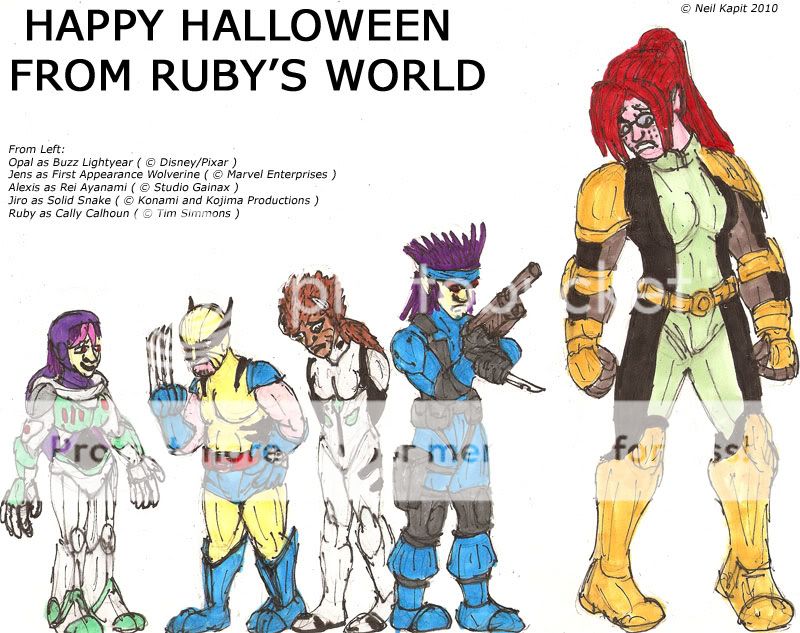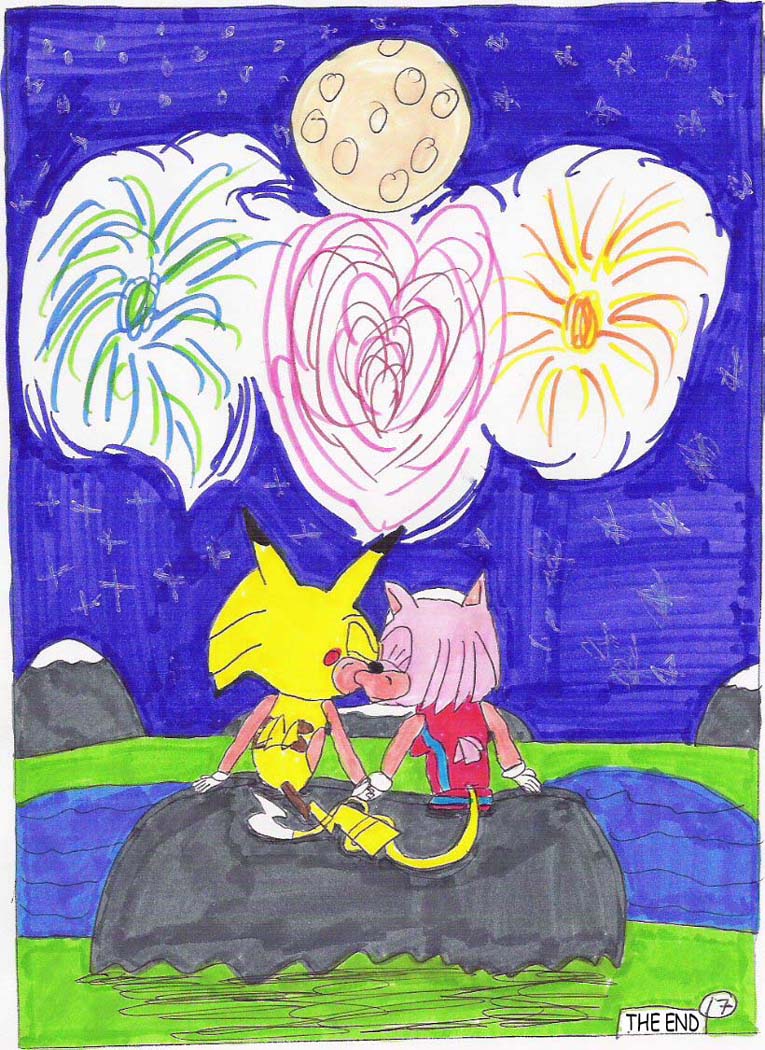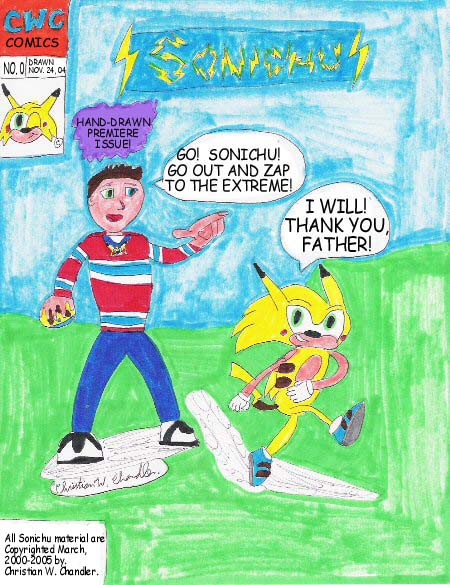
Psychological Hang-Ups The Way You Like Them Here
The Chris-Chan/Sarah Hammer/Wes Iseli love triangle continues this issue, as Christian Weston Chandler continues to bend time and space towards a favorable reality. And in doing so, he introduces the arch-villain of Sonichu, Count Graduon, whose name is a reference to Christian Weston Chandler's high school graduation.
The fact that a story about one man's refusal to grow up and take responsibility for his life would have a villain named after a rite of passage into an adulthood is stupefyingly appropriate.
Count Graduon is represented as a purple staff containing an evil spirit-- the Cherokee and Wasabi clans apparently teamed up to banish him to an inanimate prison. While the symbolism inserted by Chandler doesn't go further than the name, the meaning attached to Graduon runs much deeper, like everything else about Sonichu. Graduon is a perfect representation of the personal and cosmic forces that Chandler believes oppose him; while he has a name, he does not have a body. He is a force that is attached to an inanimate object. But he directs the efforts against Chandler, coordinating efforts of the Jerkops, Mary Lee Walsh, and the other " trolls " who deny Chandler immediate pleasure and ask him to do things that might cause pain.
The symbolism is even more telling ( and horrifying ) due to what Chandler attributes to his high school graduation. He sees it as the turning point in his life, the point where things started to go downhill. Chandler has said that he expected to receive an award for his art at the ceremony, and when he didn't, he started crying. It is certainly understandable that a young person, especially a socially awkward one who'd been coddled by his parents due to his " special needs " labeling**, would become visibly upset if they did not receive the recognition they felt due. However, the disappointments in our life are the moments where we are given opportunity to show our true strength. At that moment, Chandler could have,
A.) Done what every person ( autistic or not ) has to do, intellectually accept that life isn't fair, and try to make the best of his situation, or
B.) Create a comic strip universe inhabited by childhood heroes where he is treated like the very special flower he wants to believe he is, and refuse to leave there.
Guess which one he did? Instead of pushing back against the circumstances of graduation, Chandler DID bottle them up in a cartoon super-villain, and constrict their overt activities to sending giant golem monsters after CWCVille. Except that adulthood is too big a concept to be adequately summarized as a single bad guy, shaped like a glowing purple dildo***.
But that's the unwitting central conflict of Sonichu-- Chandler tries to create a paradise where adult problems become manageable villains, but only creates more problems for himself as he tries to simplify/ignore his challenges. The triangle between Chris-Chan, Sarah Hammer, and Wes Iseli is another example; Sarah dumps Wes for attacking her " best friend ", and teams up with Chris-Chan to fight Graduon's monster. But Wes is still around, acting mopey and hopeless until Chris tells him to snap out of it ( because Chris-Chan's ephemeral infatuations are apparently a worse loss than Wes actually being dumped by a woman with whom he was in an adult relationship ). And after the battle, when the two take a taxi home****, Chris-Chan makes a point of " being there " for Sarah, listening to her talk and playing the best friend ( while obviously waiting for her to jump his bones ) only to find that she still regards him as nothing more than a friend. Because being honest about his feelings would be a risk for Chris-Chan, and CWCVille is a place which is supposed to be free of risks-- even if that keeps Chris-Chan from the female contact he so badly wants.
The sad part is that is that Chandler ends the chapter with a tribute to the real world Sarah Hammer, his childhood friend. Uncharacteristically, he's actually acknowledging the good times they had together as kids, and mentioning specific instances that he fondly remembered. This is emotion that evokes a genuine feeling of loss, untainted the sexual frustration that warps everything else in Sonichu. It's also a reminder that underneath his outer shell of childhood trappings and adolescent libido, there are redeeming qualities that remain in Christian Weston Chandler. Of course, every time they surface, he immediately buries them under more outlandish behavior, and never learns any lessons.
* Who I'll get to in the review of the next sub-episode.
** There isn't a hell painful enough for Bob and Barbara Chandler, whose enabling of Chris catastrophically ruined a child who had as much chance of success as any. It's known that Chandler's mother buys his clothes for him, and speculated that she picks those ridiculous clown colors so that he'll appear more " special " and thus won't face adult repercussions for his actions. It's also known that Chandler's father encourages him to remain on welfare for disability, despite a lack of any known impairments that couldn't be corrected by a tall glass of Grow The Fuck Up. Chandler at least garners pity; these people are simply reprehensible.
*** This is one of many things that makes Chandler's homophobia doubly hilarious.
**** In a badly drawn taxi so lopsided that it could never roll in a straight line. Like Greg Land, Chandler's drawings liberally borrow/plagiarize from other sources; unlike Greg Land, he can't even copy his references accurately.











